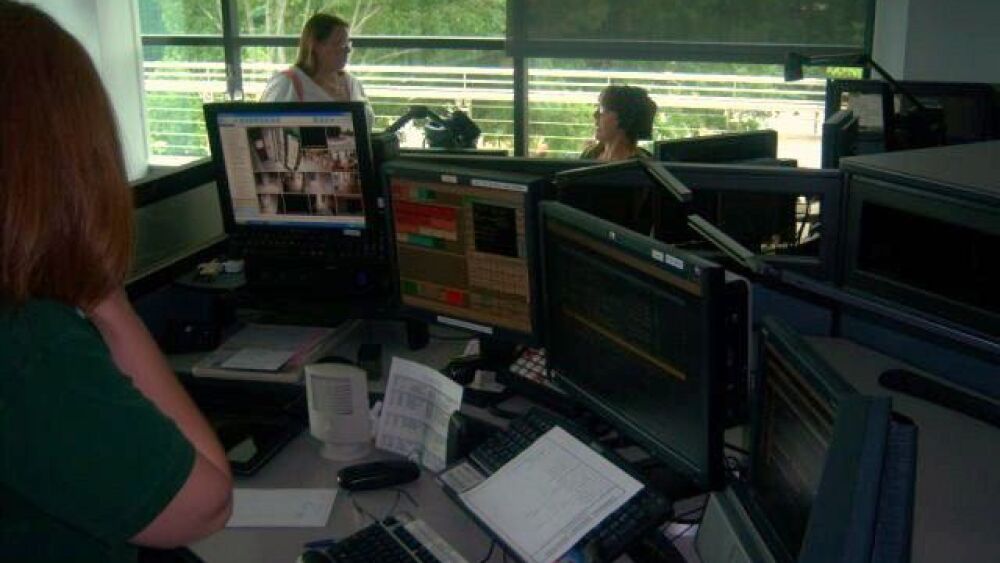Working in a 911 emergency communications center (ECC) is a high stress environment and dispatchers are known to be supportive of each other. However, there are also tendencies to develop cliques and it’s not always easy for newcomers to be accepted on the team.
These team building strategies can help ECCs build stronger, more cohesive teams.
A Leader Goes The Way
Leadership and team building skills can be honed. In 5 Takeaways for PSAP Team Building from Coach Brian Billick, “personnel structure and chemistry are critical to successful teams.”
Staff at ECCs can have a bias against a new employee joining their team. “It’s like they are an interloper,” said Beth English ENP, Higher Ground Training program manager. When bias manifests at workplaces, cultural diversity training is a good way for leaders to get their teams to analyze their biases, and unlearn them. But leaders must manage conflict to build stronger teams.
“A leader is one who knows the way, goes the way and shows the way,” wrote John C. Maxwell.
4 Steps to Better Manage Conflict
The four-part training series, “Managing Conflict Like A Boss,” presented by the Center for Community Dialogue and Training in Tucson, Arizona, teaches how to better handle conflict, build solidarity, improve mutual support, practice self-care and enhance team spirit.
The four workshops were:
- Conflict GPS: How to stop stalling and start navigating through difficult situations
- Awful Conversations: What to do when conflict blows up in your face
- Awesome Meetings Every Time
- It IS About Me: Self-Care strategies for handling conflict
A Leader Shows The Way
- In the Conflict GPS session, we completed Style Matters: The Kraybill Conflict Style Inventory, a self-assessment on how individuals respond to conflict. Eliminating or minimizing conflict is a major step in team building.
The self-assessment helps individuals understand their responses during incidents involving conflict by identifying their personality style in the following categories:
- Avoiding
- Harmonizing
- Compromising
- Cooperating
- Directing
Each of the five personality styles hold strengths and weaknesses in handling conflict. Understanding style in both calm and stressful (storm) settings will help all team members respond to conflicts more appropriately. Understanding the different personality styles and discussing them is a powerful team building activity. How do you respond to conflict?
- Awful Conversations are a large barrier to team building. “Handling delicate situations” is a learned skill that must be practiced.
There are four main parts to understand in order to de-escalate awful conversations:
- The dynamics of explosive situations
- How to maintain your composure
- How to communicate with compassion
- How to de-escalate the situation
What do you do when conflict blows up in your face? learning more about team building with the following resources:
- Nonviolent Communication: A Language of Life; Life-Changing Tools for Healthy Relationships by Marshall B. Rosenberg, PhD
- Crucial Conversations: Tools for Talking When Stakes are High by Kerry Patterson
- The Good Fight: Use Productive Conflict to Get Your Team and Organization Back on Track by Liane Davey
- 101 Training Activities and How to Run Them: Icebreakers, Energizers and Team Building by Derek Good and Craig McFadyen
- Awesome Meetings Every Time: Meetings can make or break a leader and the team. For example, if a leader shows up late or not at all to their own meeting, team members feel devalued and insulted. In contrast, if a leader’s meeting is on-time, “on-topic” and focuses participants, team members feel appreciated and respected.
Helpful hints for an awesome meeting are:
- Be clear on the type of meeting you are conducting
- Use the right leadership style for the meeting
- Make sure the right people are attending
- Focus the agenda
Effective meetings focus on a facilitator identifying why, who, how and determining agenda items. They have a distinct purpose, rational objectives and experiential objectives. Agenda items should include a welcome/opening, specific content to cover, decisions/actions needed, next step, and a conclusion.
Hierarchical leaders tend to assume top down authority while facilitative leaders focus on the team’s diversity and various perspectives to get things done.
- It Is About Me addressed self-care and conflict resolution as inter-connected. Stress, tiredness and being “emotionally spent” can convert small events into major confrontations. Being calm and strong enables us to “handle conflicts in a way that resolves the issue and preserves relationships.”
“Self-care is never a selfish act — it is only good stewardship of the only gift I have, the gift I was put on earth to offer others,” said Parker Palmer, author, speaker and activist. Some examples of self-care practices are meditation, exercise and involvement in social activities/groups such as a church.
There are four actions that can help with self-care:
- Discuss concepts of wellness, self-care, trauma stewardship and resonant leadership.
- Complete a self-assessment on stress responses and needs.
- Explore the stories we construct about conflict, and the flawed thinking that may be underneath.
- Create tools for personal self-care.
Consider completing a Mindfulness-Based Stress Reduction (MBSR) course along with your team. Also, recognize the triggers in others that upset you in a conflict situation (i.e. criticism, rolling eyes, pointing fingers, ultimatums, micromanagement).
Then, teach your team about 90-second neuroscience. “When a person has a reaction to something in their environment, there is a 90-second chemical process that happens in the body; after that, any remaining emotional response is just the person choosing to stay in that emotional loop.”













